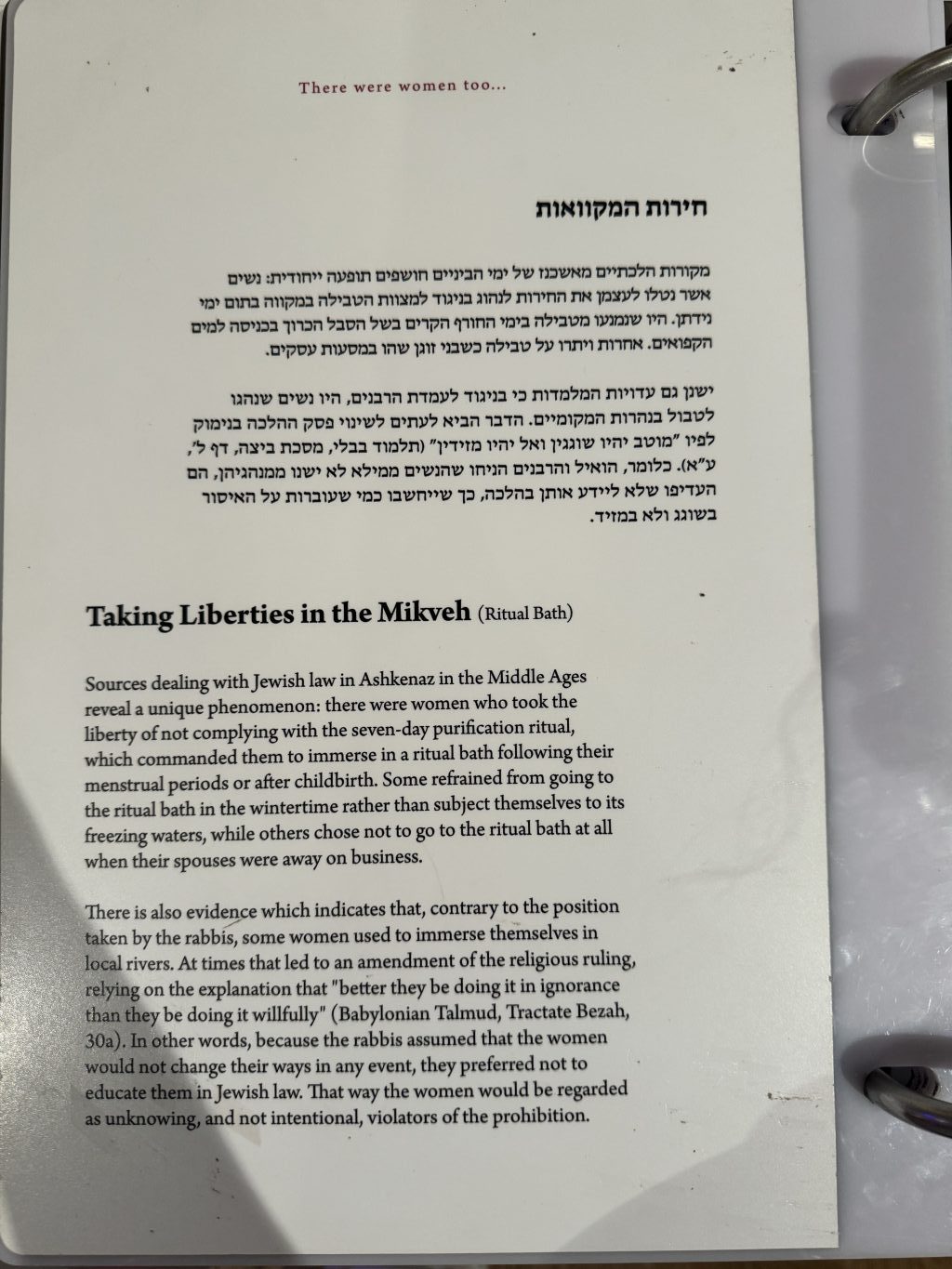Text Panel
Sources dealing with Jewish law in Ashkenaz in the Middle Ages reveal a unique phenomenon: there were women who took the liberty of not complying with the seven-day purification ritual, which commanded them to immerse in a ritual bath following their menstrual periods or after childbirth. Some refrained from going to the ritual bath in the wintertime rather than subject themselves to its freezing waters, while others chose not to go to the ritual bath at all when their spouses were away on business.
There is also evidence which indicates that, contrary to the position taken by the rabbis, some women used to immerse themselves in local rivers. At times that led to an amendment of the religious ruling, relying on the explanation that “better they be doing it in ignorance than they be doing it willfully” (Babylonian Talmud, Tractate Bezah, 30a). In other words, because the rabbis assumed that the women would not change their ways in any event, they preferred not to educate them in Jewish law. That way the women would be regarded as unknowing, and not intentional, violators of the prohibition.

